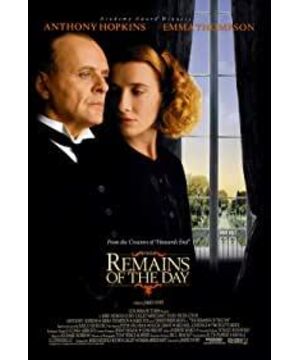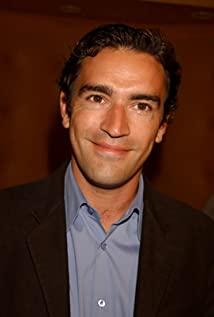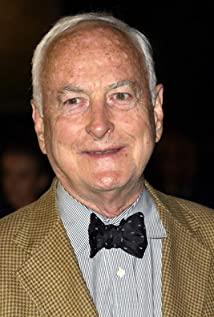Halfway through watching "The End of the Day" in class, I remembered that the film was adapted from Kazuo Ishiguro's novel. He won the 2017 Nobel Prize in Literature some time ago, which made Haruki Murakami continue to regret. But what makes Japan extremely excited and slightly disappointed is that Kazuo Ishiguro has never been a person who "writes Japan". As a British-Japanese writer who immigrated to the UK as a child and lived in London for a long time, his novels with Japanese elements are usually close to a hometown constructed in imagination, and some works more recognized, such as Keira Knightley and Kayla "Don't Let Me Go" starring Ray Mulligan and this "Long Days End" both purely set the background of the story in the United Kingdom, and later these two works were adapted into movies together. Kazuo Ishiguro describes an old Stevens' journey in "The Long Days End." So it builds the outline of a road movie, but it makes people immersed in the observation and nostalgia of the traditional British gentleman culture and aristocratic politics, focusing on the disappointment of belonging to Britain in that era: Britain, which was severely damaged after World War II, marked the colonization some kind of loss of ism.
Kazuo Ishiguro's writing transcends the national identity of many Asian writers. He is good at hiding himself in British literature. Stevens' personal recollections in "The Long Days End" are authentic and belong to the United Kingdom. The collective memory of the nation and the historical memory are implicated. The movie lays out the pattern of "Stevens on a Wanderlust" in the novel, but "The Day Will End" is different from most road movies in that it uses a lot of space to describe not the state on the road, but the state of the road. "The Way" by Stevens.
In the movie "The Long Days End", the love between Miss Kenton and Stevens has an image as a carrier, which is even more moving. Emma Thompson, who plays Miss Kenton, first saw her film in Sense and Sensibility, in which Emma Thompson is the son of the Duke of Darlington in The Long Days End Actor Hugh Grant plays a couple. The eldest sister she played in Ang Lee's film is almost another Stevens, forbearance, restraint, gentle, loyal to love but more loyal to family and sense of order.
The name "Long Days to End" signifies a lament over the passing of Britain's past glory, and also indicates that the fire of Stevens's life is about to be extinguished. But the film's mainland translation is "Farewell to the Sentient Heavens", and it bears witness to one of those heartbreaking farewells: it takes place between Miss Kenton and Stevens, and between the two persecuted between Stevens and the Duke of Darlington, between Stevens and her father, between his father and his life's work.
"Butler" seems to be a title and occupation that belongs to the United Kingdom. It makes Stevens determined to maintain absolute loyalty to his work like his father, and he also longs for absolute dignity in it. Rejection of married life provides a plausible context. But ironically, when the Duke of Darlington gained notoriety for helping the Nazis come to power before the war, Stevens denied that he ever worked for the Duke, along with his own past when he renounced lust and love and was only conscientious. After that, Stevens had nothing, and he stood in his twilight years, so he decided to go to the West Bank to greet his Kenton, but ushered in a heartbreaking goodbye.
Back then, Kenton married someone else after getting no response at all. They had an unsatisfactory marriage in the West Bank, and they missed the opportunity since then. As they worked together in the Darlington mansion in their prime, Kenton stepped closer to Stevens at the next step of the curtain, trembling in his heart but holding back, like staring at the approaching fate and keeping himself closed . Miss Kenton snatched his book, and with sour eyes forced him to the point of no return; talked with him about work at night, accompany him in Stevens' safe area; insisted on picking fresh flowers for him to send to the office; but time Passed away, but Stevens still insisted that she was just a normal friendship. Their relationship is full of tension, and it's obvious that Stevens pulls back his bow and pushes Kenton into someone else's arms. There are also many banter parts in the middle of this film, which makes it, in addition to the loss of farewell, has the gentleness of the gurgling flow and the magnanimity after being examined by time. In the end, the two said goodbye at the station late at night. The tears were not only for the unfulfilled love, but also for the old people who will never come again in the impermanence of the world, and for the changes of an era and a nation between glory and decline.
View more about The Remains of the Day reviews











